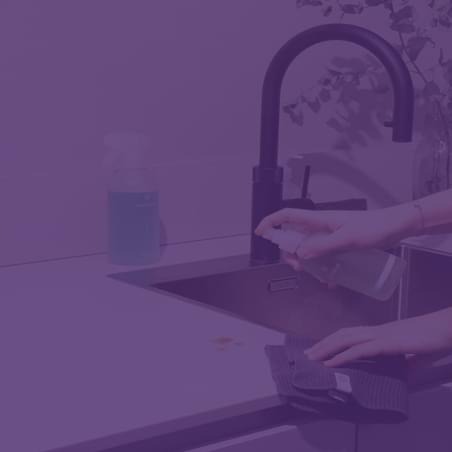Insights

17 Feb, 2026
Five Products: When World’s Collude. The Changing Face of Cleaning
Read More
Andy Wardlaw, Chief Ideas Officer
13 Jan, 2021 | 4 minute read
Throughout 2020, brand leaders in fast moving categories have put on sales and share as shoppers defaulted to the familiar. Challengers were put on the backburner. But the dynamics are set to change once again. I met with Doctor Sara Bru Garcia, Behavioral Psychologist with The Together Agency to explore how things might play out in the year ahead, and how brand leaders can respond.
COVID‐19 has changed our collective experience of the world and with it, altered our habitual behavioral patterns. Shopping behavior has been no exception, with robust evidence of mass migration away from smaller ‘insurgent’ brands back towards the category stalwarts.
While the importance of situational factors such as potentially tighter household budgets can’t be overlooked, behavioral psychology can help us understand some of the basic psychological phenomena that will influence people’s decision‐making processes in 2021.
Doctor Sara Bru Garcia, Behavioral Psychologist with The Together Agency affirms that the sudden changes and uncertainty brought about by the COVID‐19 pandemic will have fired a sharp increase in people’s levels of anxiety and stress.
“All the evidence shows that high levels of stress and anxiety can significantly affect our decision‐making, causing a shift towards habitual rather than goal‐oriented behavior. In circumstances such as lockdown, people’s behavior will be dominated by a psychological need to reduce uncertainty. In other words, this pandemic is driving people to stick with what they know.”
So, that classic brand of yogurt that you ditched in 2019 in favor of some fanciful newbie may well be back in your life – because it offers much greater certainty over the brand you hardly know.
Sara references the Mere Exposure Effect (MEE), which suggests that repeated exposure to the classic brand without any adverse consequence can lead to the formation of a preference for that brand again. In the words of early 20th century psychologist Edward Titchener, we feel “the warm glow of familiarity”.
This preference for things that are familiar is a robust phenomenon that has been measured in a variety of contexts, with different stimuli, and even in other mammals.
However, as we move into the ‘beginning of the end’ of COVID-19, there is every likelihood that our preference for the familiar will wane. Challenger brands have every chance of bouncing back and even surpassing their pre-pandemic momentum. Many commentators are talking about ‘huge pent up demand for newness.’
The work of Professor David Levy at the University of Washington has observed that our ‘always on’ digital lives are causing us to crave higher levels of new stimulation offline. All of which means that the pursuit of newness is set to return. Because we’re literally being programmed to seek it out!
The consequences for brand leaders are an imperative to act fast and truly capitalize on the recent surge of affection from consumers.
So, how can brand leaders keep adventurous consumers on side when all this uncertainty has passed? Back to the psychology of shopping, and Sara reminds us of pain of losing and the satisfaction of gaining – often referred to as loss aversion.
“Loss aversion provides a pathway for consumers’ continued preference towards brand leaders over novel brands - because of the potential risks associated with something new.”
So, calling all big brands, herein lies the opportunity:
Refresh what’s familiar about your brand, pack and product and make it even more potent and less prone to imitation.
Take your sensory blueprint into emerging sectors, flavors and formats – acting as the consumers trusted guide for some brand-new adventures. Consider Limited Editions to cater for people’s deep-set desire for newness, while minimizing any sense of loss aversion built up in 2020.
Engineer a more entrenched place in people’s habitual repertoire by harnessing behavioral thinking into your renovation plans - such as the 'peak-end rule'. Psychologists report that people tend to remember the peak of an experience, and how it ends. Time for a little sensory magic, I think!
Now is the time to ensure that the sensory characteristics of your product are reaffirming reassurance and letting people know ‘you won’t let them down’ - particularly for all those new adventures about to restart.
If you'd like to understand a bit more about us or find out how we can help solve your challenges, check out our team's availability and book in a call at a time that suits you.
If you'd prefer to chat over email, fill out your details below and we'll get back to you as soon as we can.